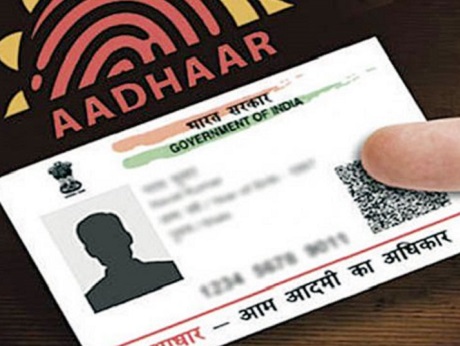
New Delhi, September 27 2018: Aadhaar, the Indian Universal Identification scheme and the world’s largest biometric ID programme is legal but its overreach to encompass all manner of services is wrong, says the nation's highest court.
The 12-digit unique identification number was touted as a way to tighten the public distribution system where benefits were rampantly misused.
Since last year, several banks had been refusing to open new accounts without an Aadhaar. This was even before the Reserve Bank of India’s March 31 deadline to link bank accounts with the 12-digit ID became operational.
The Constitution Bench of the Supreme Court of India yesterday was unanimous in declaring that seeding of Aadhaar with mobile phone SIM cards was unconstitutional. A five-judge bench struck down section 57 of the Aadhaar Act, which allowed corporate entities or even individuals to demand an Aadhaar card in exchange for goods or services.
"The Constitution does not permit the establishment of an authority that in turn through an invasive programme can chain every Indian citizen/resident to a central data bank and maintain lifelong records and logs of that individual" the Court said.
Only those who wish to avail of the direct benefit transfer (DBT) schemes of the government — cooking gas, public distribution system, the rural jobs programme and so on — would have to enrol for Aadhaar.
The dissenting judge on the Bench, Justice D.Y. Chandrachud wrote that that whatever data collected so far by service providers should be deleted forthwith.However, the Aadhaar number must still be quoted to file income tax returns and apply for a personal account number (PAN).
Some early reactions:
Ramesh Mamgain, Area Vice President, India and SAARC Region, Commvault:The honourable Supreme Court of India has made the right decision by de-linking Aadhaar data from mobile phone and bank accounts. This will go a long way in protecting user data and ensuring that there are fewer risks in data leakages. However, private enterprises will need to get their act together quickly to migrate to GDPR norms and ensure that secondary data is managed securely across locations.
Amba Kak, Mozilla’s Policy Advisor: By holding Section 57 of the Aadhaar Act to be unconstitutional, the Supreme Court of India has recognized the surveillance risk created by the indiscriminate and rampant use of Aadhaar for private services. While this is welcome, by allowing the State wide powers to make Aadhaar mandatory for welfare subsidies and PAN, this judgment falls short of guaranteeing Indians meaningful choice on whether and how to use Aadhaar. This is especially worrisome given that India still lacks a data protection law to regulate government or private use of personal data. Now, more than ever, we need legal protections that will hold the government to account.
Rana Gupta, Vice President, APAC Sales, Identity and Data Protection, Gemalto: Honorable Supreme Court’s judgment around the constitutional validity of Aadhaar Act shall be seen as a milestone in the ongoing journey and not an end by any means. This judgment clarifies the voluntary usage of Aadhaar but in reality it preserves the core aspects by stopping leakage of public money to unscrupulous elements by mandating the use of Aadhaar for availing any government subsidies and benefits, as well as stopping the money laundering by mandating the linkage of PAN cards with the Aadhar. Gemalto has been fortunate to be part of this journey in order to facilitate a safe journey to all concerned. Irrespective of how this journey evolves, Gemalto’s 3-step secure-the-breach suite of solutions will continue to facilitate data-protection through encryption, key management and secure authentication. The only obvious downside at this stage seems to be the constraints imposed on eKYC by any and every service provider outside the government. The convenience of eKYC will be missed in the immediate term.
Manav Jeet, MD & CEO, Rubique:
The recent judgement by The Supreme Court on declaring Section 57 of the Aadhaar Act unconstitutional will compel firms to re-evaluate consumer onboarding process through e-KYC. The court has now given the liberty to self-volunteer for linking Aadhar Card and opt for the e-KYC process. This is an empowering decision for customers can they can now be assured of data privacy. However, customers will have to face a couple of peculiar challenges in order to access credit. First and foremost being, delay in instant loan approvals. With physical model, the credit facilitation may take more than three days as against 10-15 minutes in online model. Also, the cost of accessing credit may go up due to physical model. This burden will mostly be passed on to the borrowers. Aadhar is a crucial link to bring the last mile under formal banking ecosystem. The judgement may impact the agenda of financial inclusion as well.